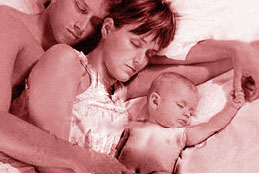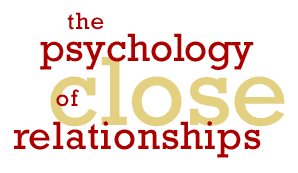Disenfranchised Losses
In one opening vignette, Lucy confides her grief over the death of her beloved dog, only to have her well-intentioned co-worker, Tasha, dismiss the seriousness of of her loss with "it was just a dog." "It"? "Just"?
Obviously it matters to Lucy. Perhaps Tasha just hoped to diminish Lucy's pain, offer some perspective or distract her. More likely, Tasha doesn't understand the depth of Lucy's grief because, to most people, pets don't "count" as much as
people do in terms of "grief potential."
Pet lovers have a right to feel hurt, if not offended, at such unsympathetic remarks. But those who love animals at least know others are likely to see animals as property rather than as friends, and can't be counted on for
condolences. Still other losses, also slighted by those who ought to be sympathetic, are harder to anticipate. Miscarriage, for example.
Pregnancies that end in miscarriage are also losses. The physical changes, personal expectations and emotional adjustments of pregnancy change both parents' lives. The loss of a fetus represents to them the loss of what it
meant to them. It represents the loss of a future, hopes never to be realized. And yet, well-intentioned and probably just unthinking others frequently offer most unwelcome and inaccurate words: "It's good it didn't go any
further, it would have been worse." "At least you didn't have a real baby to get so attached to." And of course: "Don't worry, you can always have another one."
These are disenfranchised losses, painful to those affected directly, but often misunderstood or diminished by others. In the case of pet bereavement, people who don't value pets -- because they either don't live with
pets or view their pets as possessions, not as family members -- don't understand the source of grief in the first place. They may see pet-bereaved friends as "overreacting," and hope to alleviate their pain by "reminding" them that this loss
was not really an important one. They may be genuinely surprised when the sad pet owners react with offense and anger.
It seems harder to understand how real friends or family could diminish grief over miscarriage. Studies of expectant individuals and couples confirm that the child is subjectively real, a child of the future, symbolic of love,
hope and intimacy. Plans have been made, supplies and toys have been purchased. The death of the hoped-for child is the death of hope. Even if miscarriage was anticipated, as with a sick or distressed fetus, especially for a pregnant
individual, this is literally grief that must be carried, both borne and born. It seems impossible to understand what that feels like. Thus the very wrong thing to say is "I know how you feel" -- "-even another survivor of
miscarriage wasn't expecting this baby, and so the assertion isn't true. Remarks such as "You can have another" or "...get another" or "At least it wasn't too far along" are inevitably unwelcome, even enraging. Better to say
nothing than try to tell the parents this pregnancy meant nothing.
Perhaps the most common case of disenfranchised grief is grief over nonmarital breakup, the kind of relationship loss that happens many times for every legal divorce. Whether you were the breaker or the breakee, if the relationship
was integrated into your life (typically after about two years of closeness), the loss is psychologically real, and entails genuine grief. Even short-lived relationships involve a loss of hope or a loss of face; social discomfort;
embarrassment; depression; guilt or mistrust. Again, well-intentioned outsiders might offer consolation such as "Good thing you weren't married," or "Better to find out now." But it doesn't feel "good" or "better." The
disenfranchisement of nonmarital breakups leaves survivors unable to talk about their losses, anxious and lonely.
We who suffer from losses that might be disenfranchised have an opportunity to educate these outsiders. Point out to others that "this mattered to me, so I feel very sad." Or suggest to others that "if you want to be a good
friend, I really need someone to listen to me without giving me any advice." Those who care about us are usually ready to do help if only we will tell them how. Disenfranchised losses are problematic for not only friends and colleagues,
but institutions and organizations as well. Without a script or safe guidelines for when and how to offer condolences, discomfort and hurt feelings are inevitable.
Those who suffer losses can help everyone, including themselves, by explaining frankly how they feel and why they hope for others' good will and sympathy: "I know you're not a dog person, but I think if you were, you'd understand why
I need some time. I think you know I'd give you the benefit of the doubt if you were the one suffering from a painful loss. I'm not making an unreasonable request, and you know I'll make up the work later." By explaining why our grief is
real, and how our friends can help, we can improve our circumstances just a little, and keep others close just when we most need their understanding and support.
Grief as a Process
When Dr. Elisabeth Kübler-Ross published her influential On Death and Dying in 1970, she popularized a stage theory of endings -- not only the end of life, but the end of relationships as well. Stage
theories are useful in developmental psychology because they propose a step-by-step change over time, each step adding a new theme. Kübler-Ross opened up a taboo subject, talking not about "passing" or "crossing over" but dying, especially
coming to terms with one's own mortality and terminal condition. Listening to people confronting death, she identified five stages of self-loss: denial, anger, bargaining, depression and, finally, acceptance. See how well this fits the
experience of surviving a breakup or death:
- Denial: Initially, you refuse to acknowledge the tragedy.
- Anger: But the tragedy is real. You feel threatened and react with rage: How could (you/the Universe/God) do this to me?
- Bargaining: You beg or pray for a second chance, offering to live a better life, quit smoking or be nicer to your partner's mother.
- Depression: It hasn't worked, the end is inevitable anyway. You experience loss of energy and hope, changes in physical functioning, sadness and a longing for escape.
- Acceptance: The circle is complete, and you face the reality without denial, doing whatever must be done for the transition (out of this life, out of marriage, etc.).
Stages are a handy way to understand change,and a comforting one as well, even when they describe a tragic process. Stages tell us what will happen next, and what to do about it. They also create a sense of progress: "I'm all
through my denial and anger, now I'm trying to strike a bargain." But Kübler-Ross's original model applied mainly to confronting the end of one's own life. Though helpful in highlighting some of the emotional terrain involved in the loss
of a living partnership, it applies less well to divorce or breakups. In those cases, the partner goes on -- but without you. If you were the one who left, guilt might prick your thoughts; if you were the one left, the feeling of rejection
can feel quite distinct from anger or depression.




